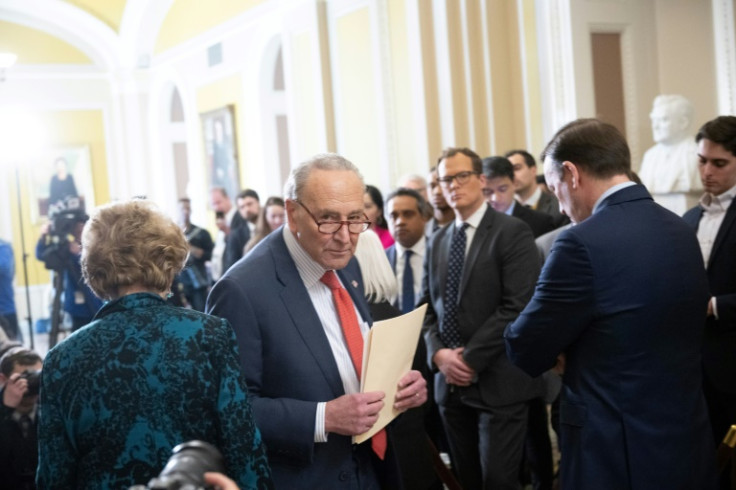
The Senate will vote on the Right to Contraception Act this Wednesday, just before the two-year anniversary of the Supreme Court's decision to overturn the right to abortion.
Senate Majority Leader Chuck Schumer (D-N.Y.) said in a "Dear Colleague" letter that at least 20 states have imposed near-total bans or severe restrictions on abortion access since the Dobbs v. Jackson Women's Health Organization ruling.
With June 24 marking the second anniversary of the order, Schumer has initiated the legislative process for the Senate to deliberate on the Right to Contraception Act, introduced by Senators Ed Markey (D-Mass.), Mazie Hirono (D-Hawaii), and Tammy Duckworth (D-Ill.).
The proposed bill seeks to guarantee the legal right for individuals to obtain and use contraception and for healthcare providers to offer contraceptive services, information, and referrals, according to The Hill.
The bill also aims to prevent both the federal government and states from enacting or enforcing laws that restrict the sale or use of contraception. It also provides a legal framework for the Justice Department, healthcare providers, and individuals to challenge any restrictions on contraceptive rights in court.
"There's no question in the American people's minds that Republicans have brought our country to this point. And as Donald Trump reminded us recently, he is 'proudly the person responsible' for the annihilation of Roe v. Wade and the grotesque reversal of women's personal freedoms," Schumer wrote in his letter.
"Democrats will never relent until we reverse the immense damage MAGA Republicans and the Supreme Court have inflicted and we remain absolutely committed to doing everything we can to protect women, families, and reproductive freedom," he added.
He said that "members should expect to vote on that legislation on Wednesday this week. And there will be more action to come after that."
Although the legislation boasts 49 co-sponsors among the Democrats, there's no indication yet whether it has any GOP support.
Former president and presumptive Republican presidential nominee Donald Trump recently sparked controversy by suggesting he was considering contraception restrictions, a statement he later retracted. President Joe Biden, on the other hand, has maintained the protection of reproductive healthcare as a central theme of his campaign.
Recent state court rulings have further sparked controversies over this issue. In Alabama, the state's highest court made a decision that threatens access to in vitro fertilization.
In another order, the Arizona Supreme Court resurrected a Civil War-era statute that effectively bans abortion.







